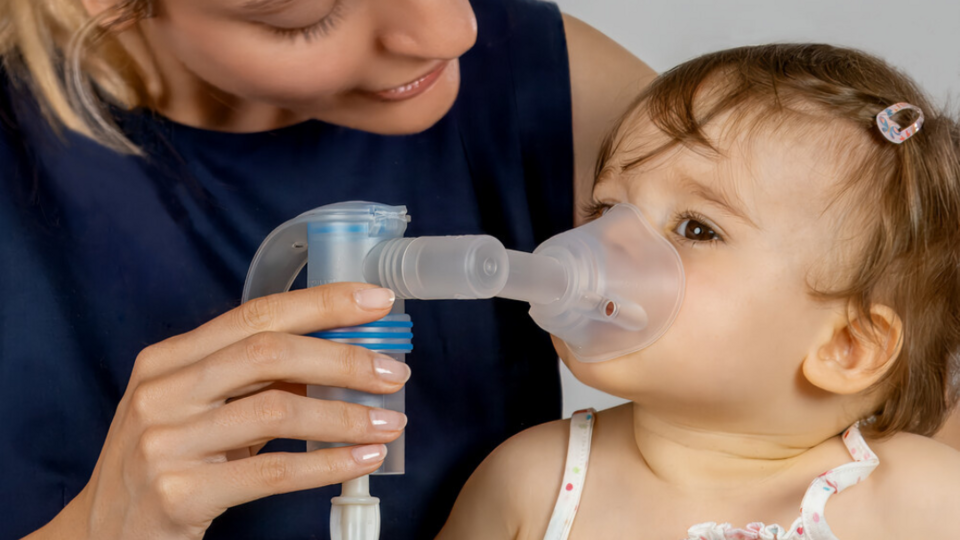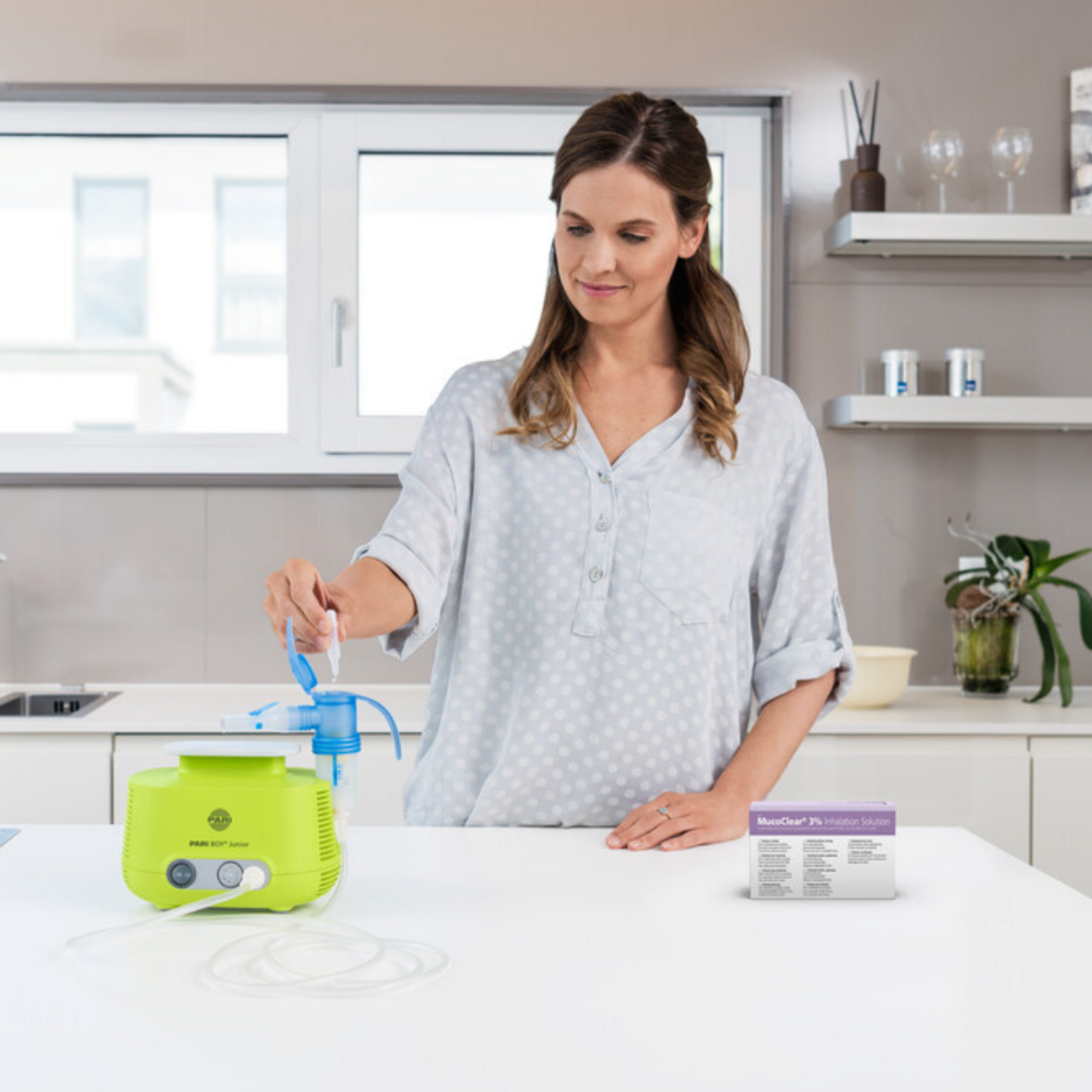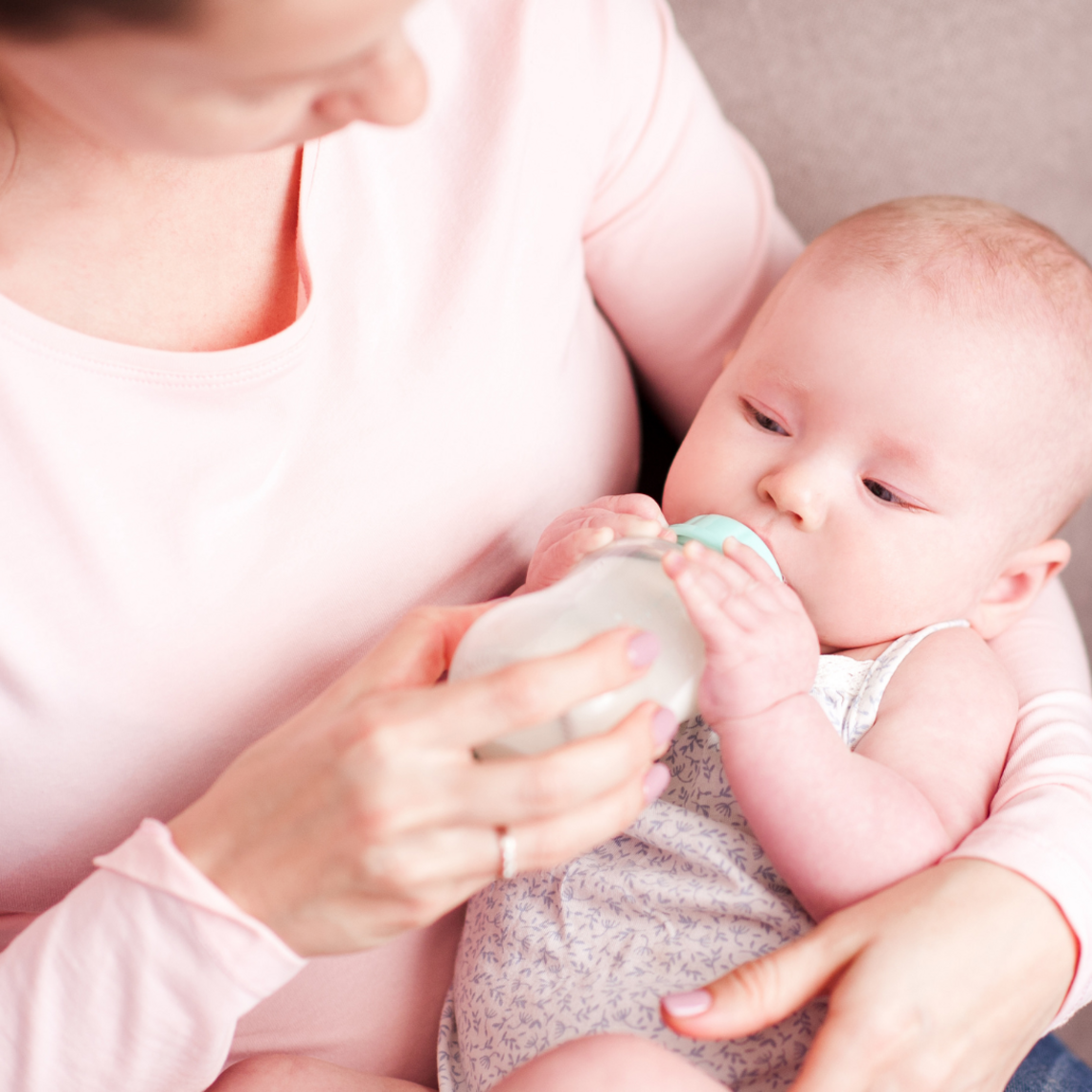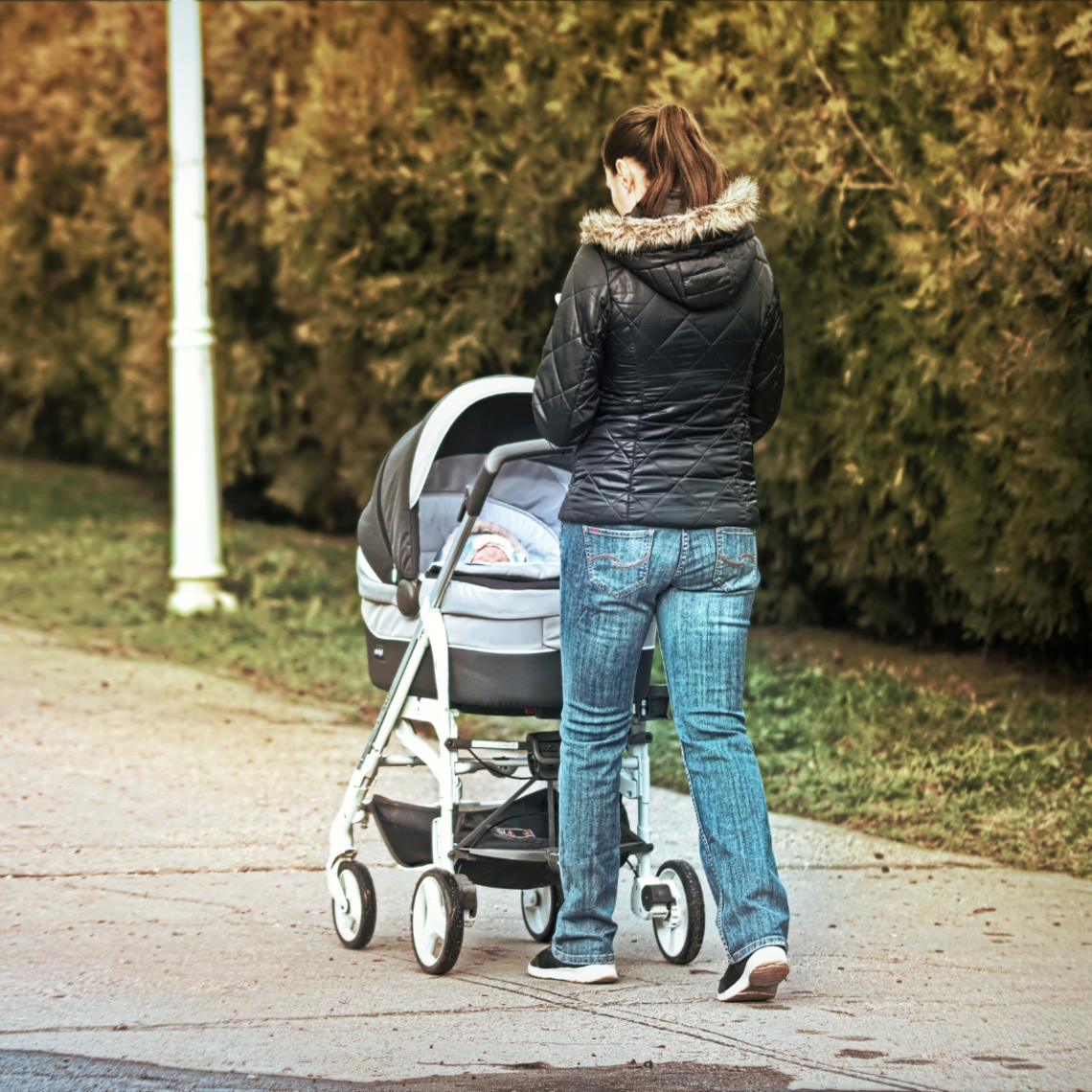Many parents worry if their newborn has sniffles. Because a blocked nose makes it difficult for your little darling to breathe, drink and sleep. These tips help your baby to get through the sniffles more easily.

It can be worrying for parents if their newborn has sniffles. Up to the age of six months, babies breathe mainly through their nose. So a blocked nose impairs their breathing and can also lead to feeding and sleeping problems. Generally speaking, it is advisable to always see a doctor in the first few months if your baby has an airway infection. You can also help your baby feel better with the following techniques.
Inhalation therapy with saline solution helps moisten the mucous membranes and loosen the mucus. Paediatrician Dr Markus Praun says:
“Particularly in the case of airway infections, nurturing the airways using inhalation therapy with isotonic saline solution (0.9%) is especially recommended.”
Use an inhalation device with a nebuliser for the inhalation therapy such as the PARI BOY Junior – and it is very important to use a suitable inhalation mask for babies. This ensures that the inhalation therapy is effective and is comfortable for parents and their baby.
Another positive effect of inhalation therapy according to Dr Praun is:
“Well-moistened mucous membranes improve sleep quality and the child can recover more quickly from an infection.”
At the beginning, the inhalation therapy may be strange for your infant, and they may cry. Hold your newborn and introduce them to the inhalation therapy patiently, lovingly and step by step. Read our tips on inhalation therapy with infants for information on how to do this.
Hypertonic saline solution is especially effective against thick mucus, as it is particularly good at liquifying the secretions. If your newborn inhales the expectorant inhalation mist, the mucus flows out of the nose faster and you can wipe it away with a tissue. In most cases, a 3% hypertonic saline solution or a 3% hypertonic saline solution diluted with isotonic saline solution is ideal for infants.

Make sure that your newborn drinks plenty – either breast feeding or with a bottle. That keeps the mucous membranes moist from the inside out and helps the body fight sniffles.

A nasal spray can also liquify the mucus. If necessary, your paediatrician can prescribe a nasal spray formulated to reduce swelling. But make sure you do not exceed the dose recommended by the doctor.
To use the nasal spray on a baby they need to keep still and let you insert the spray head into their nose. This can be challenging. This is why it may be advisable to use the nasal spray while your newborn is asleep.
“Every infection takes rest and time to recover. That is the most important rule! And (...) plenty of fluids and regular fresh air can help towards a faster recovery.”
Dr Manfred Praun
Paediatrician
Fresh air stimulates the circulation, breathing and all metabolic processes. That also applies to a newborn with sniffles. If they have a fever, they should not, however, be taken out for walks.

REMEMBER: If your newborn has the following symptoms as well as a stuffy nose, you should take them to see a doctor:
Note: The information in this blog post is not a treatment recommendation. The needs of patients vary greatly from person to person. The treatment approaches presented should be viewed only as examples. PARI recommends that patients always consult with their physician or physiotherapist first.